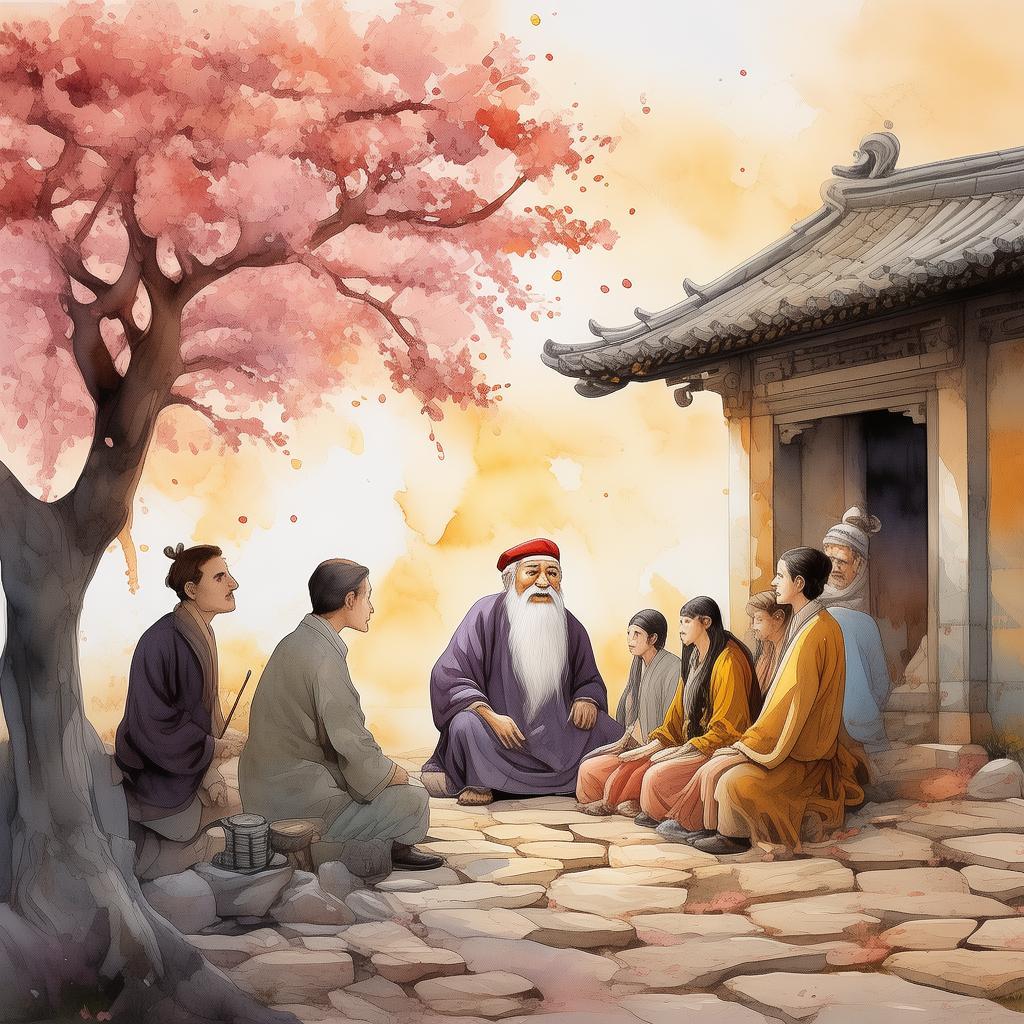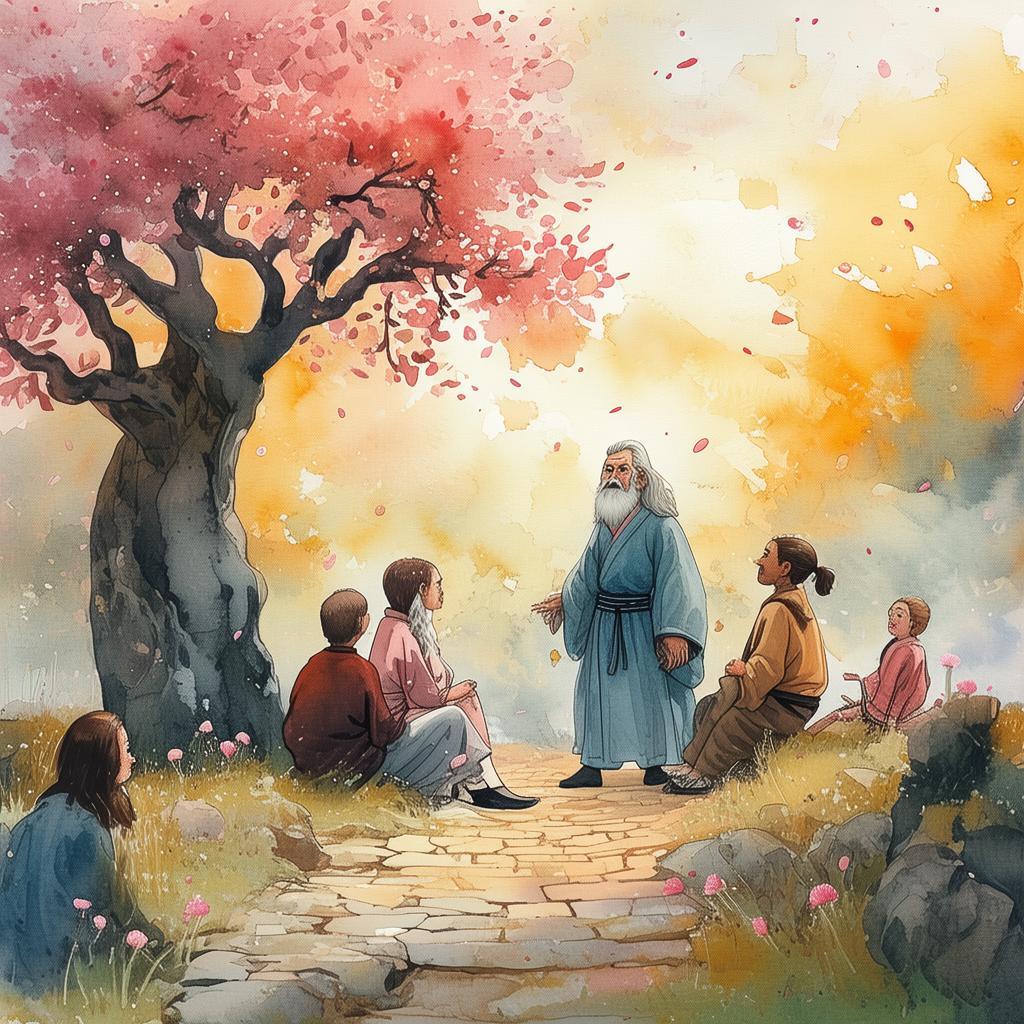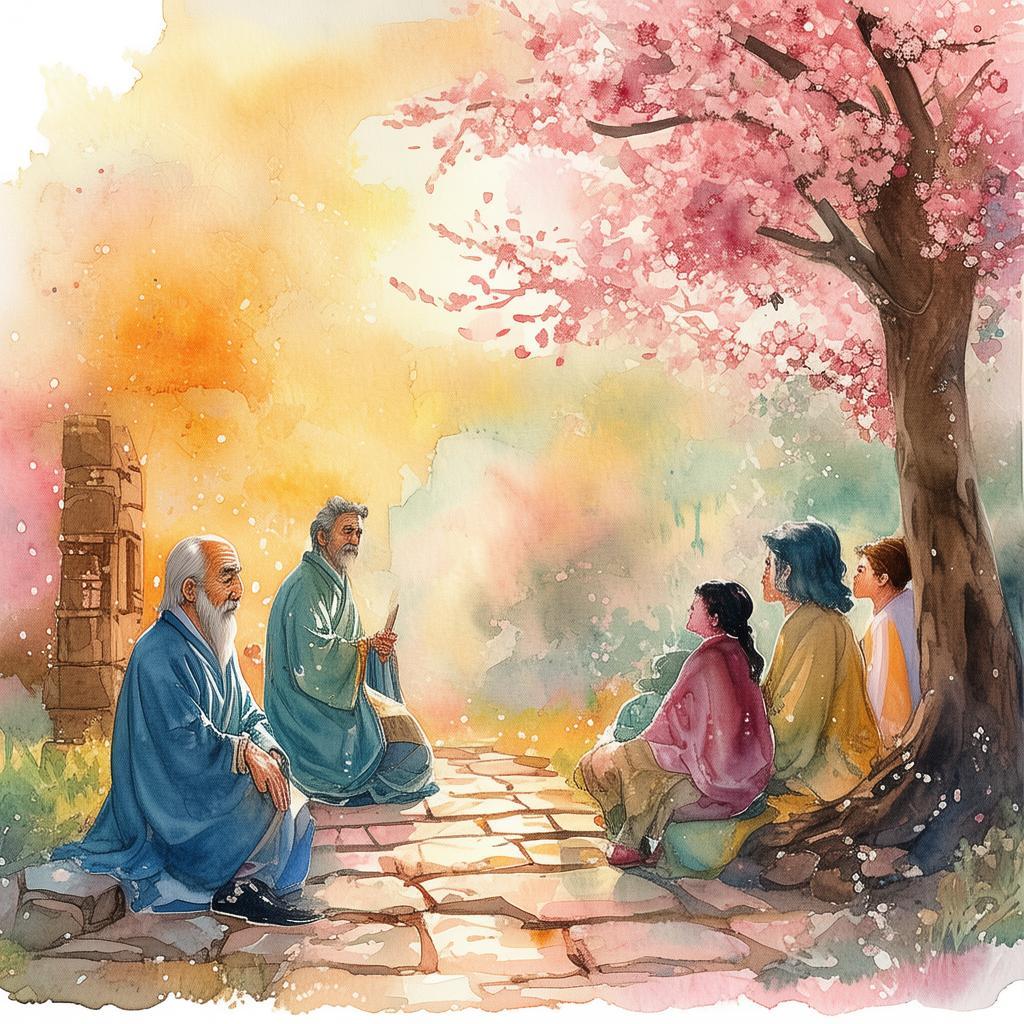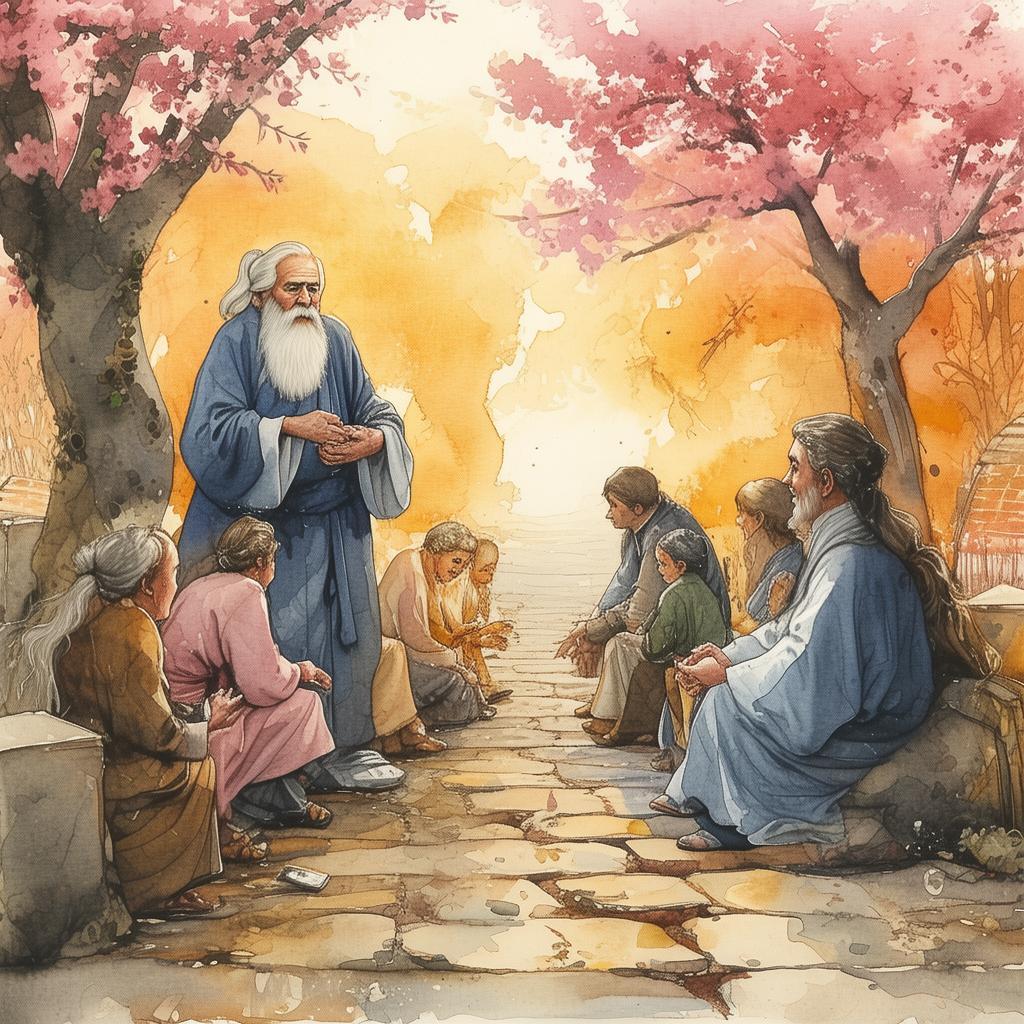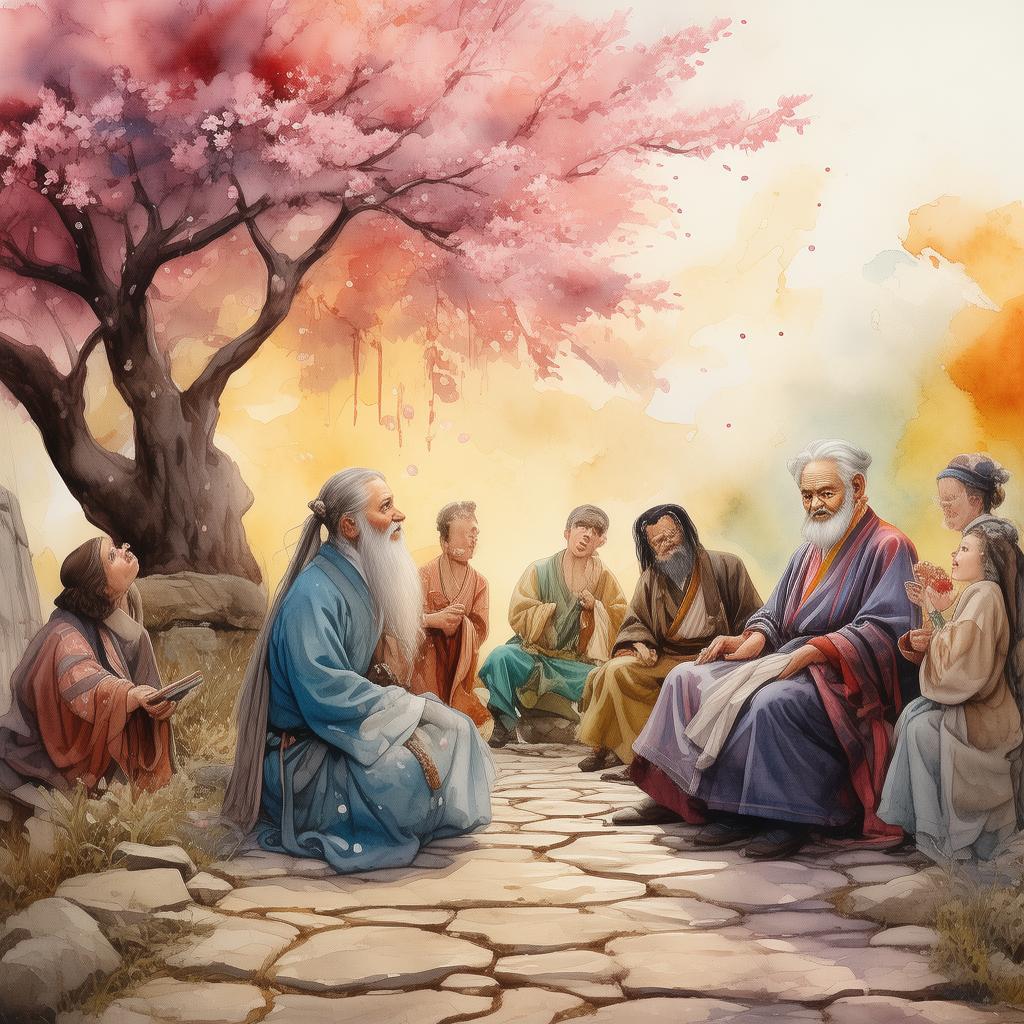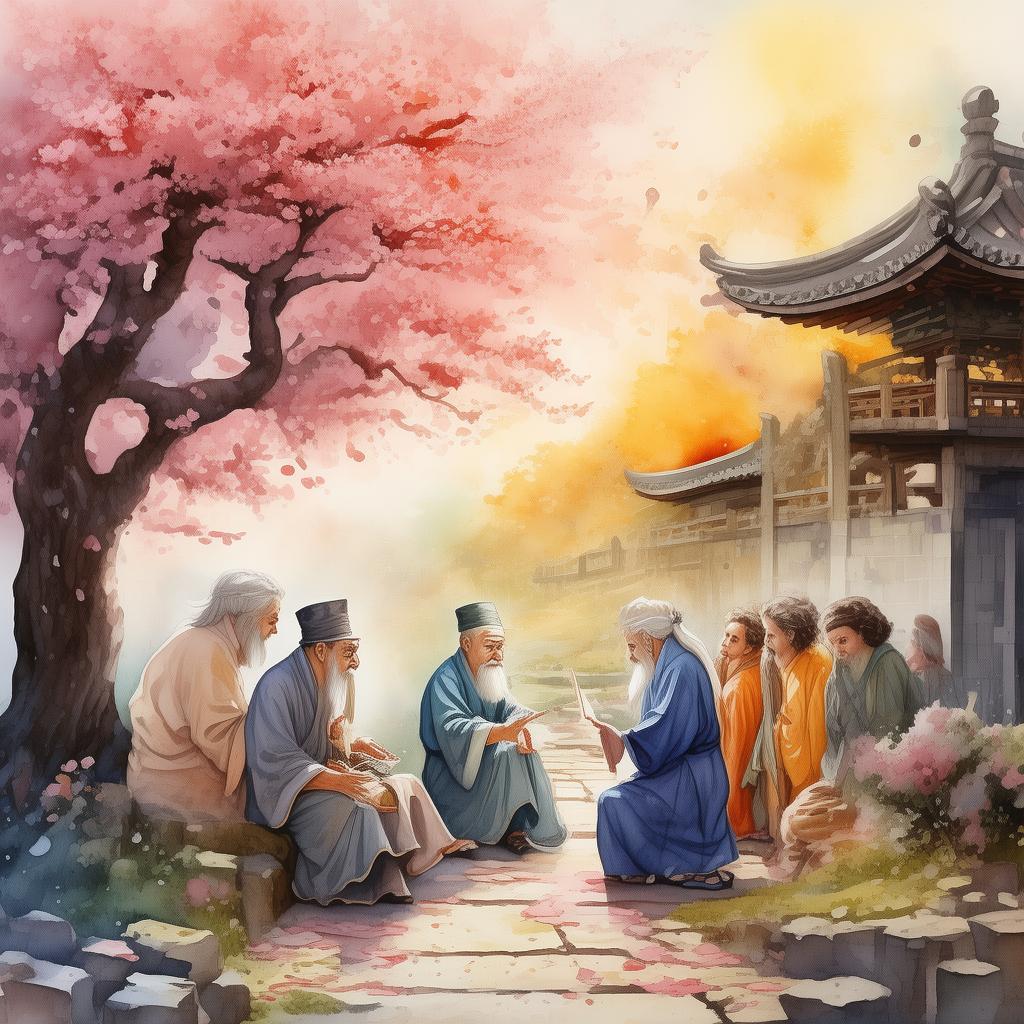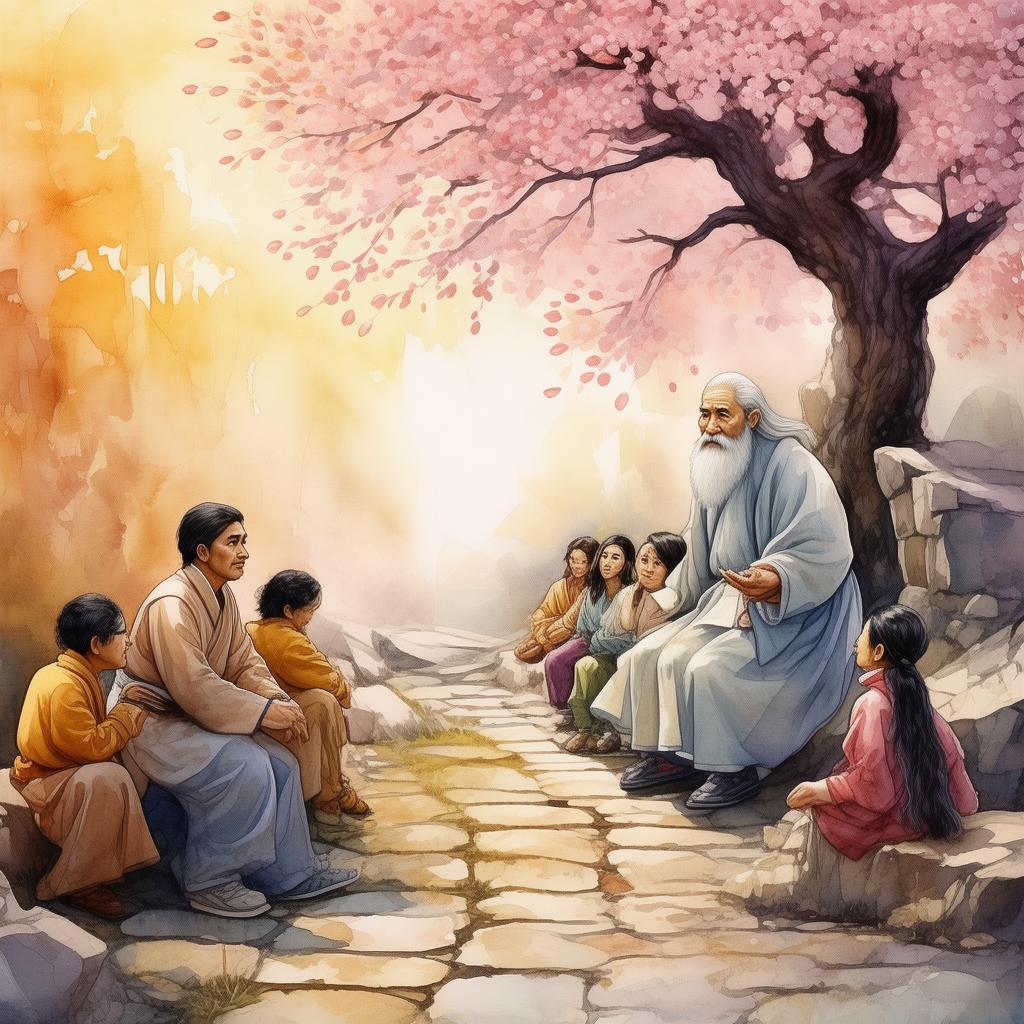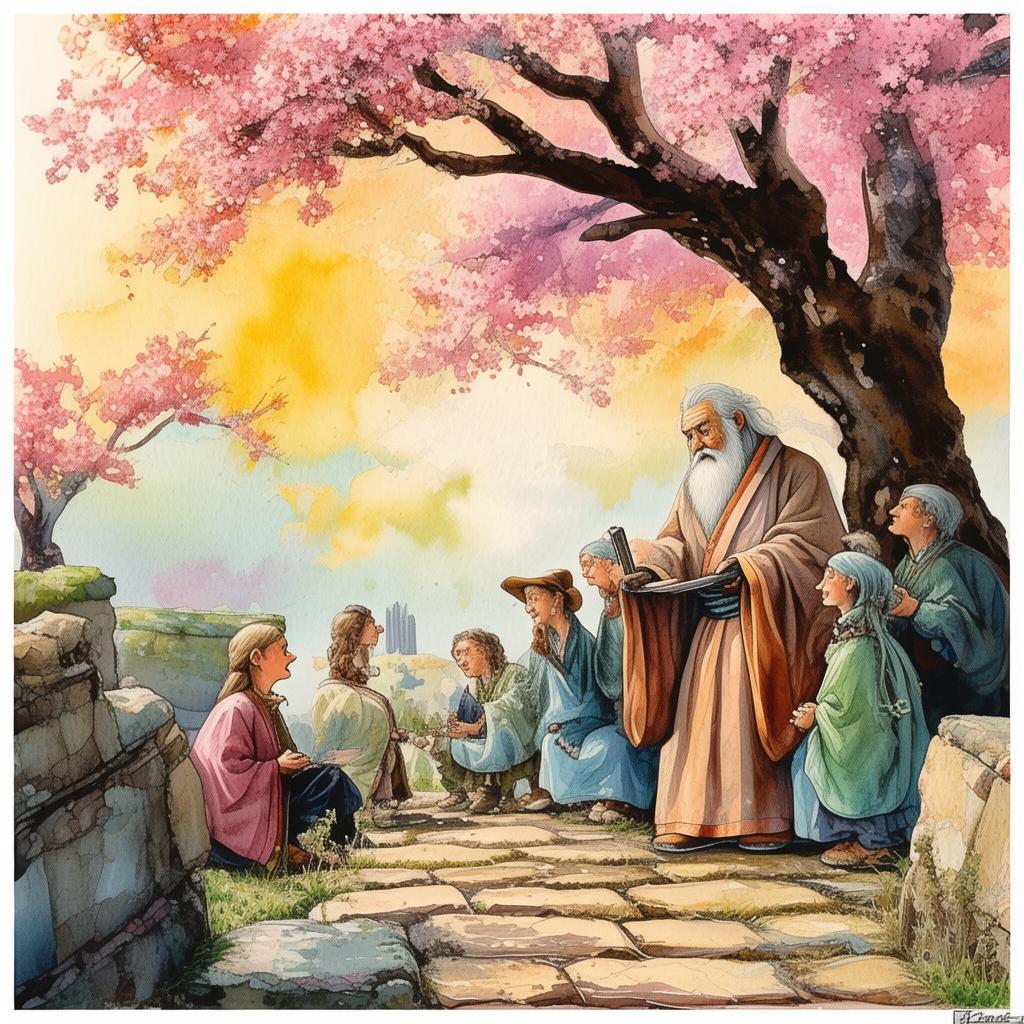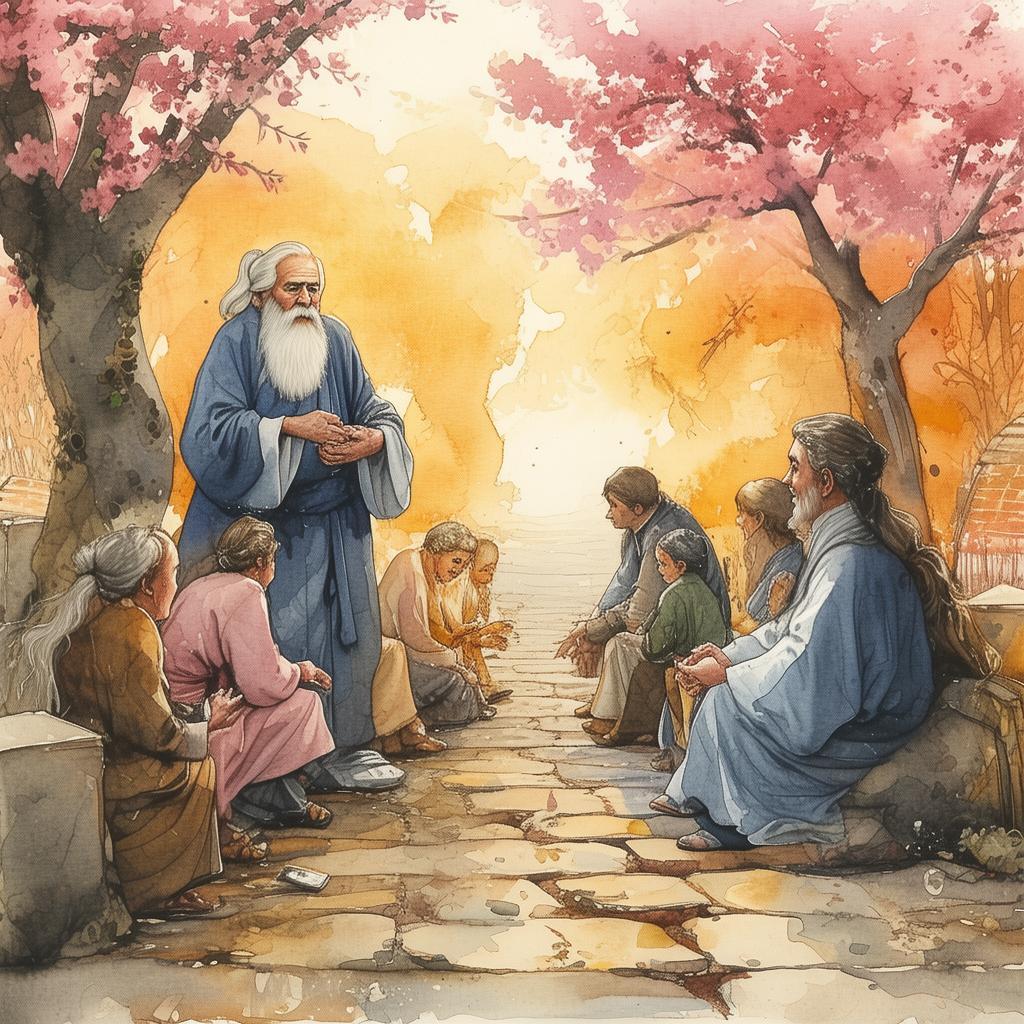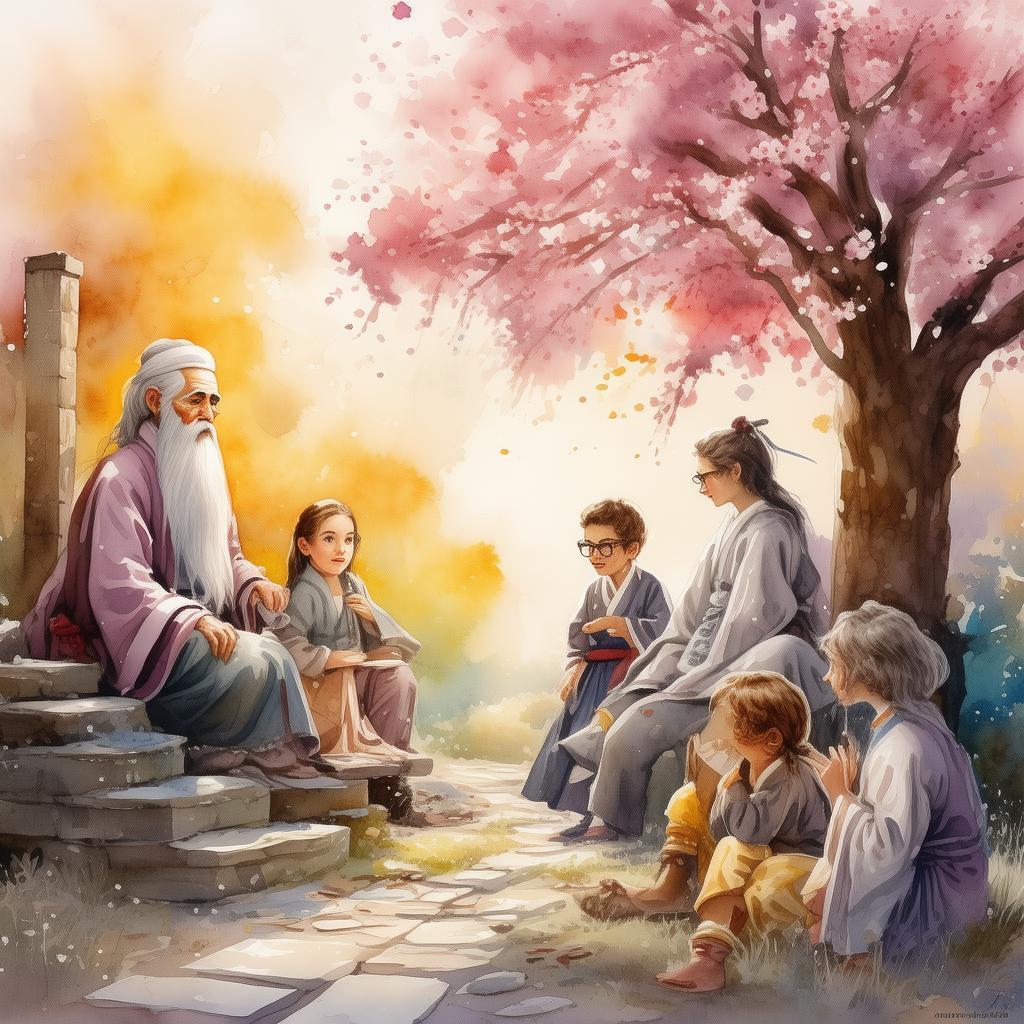The Pinyin Paladin's Perilous Permutation: A First Grader's Historical Romance
In the bustling town of Qingyuan, nestled between towering mountains and winding rivers, there lived a first grader named Ming. Ming was not like other children; he was a master of pinyin, the phonetic alphabet used in China. His passion for the language was unmatched, and he spent his days decoding ancient texts and playing with his toy abacus.
One sunny afternoon, as Ming sat in his room, a sudden gust of wind swept through the window. A mysterious book titled "The Pinyin Paladin's Perilous Permutation" flew from his bookshelf and landed in his lap. The book was unlike any he had ever seen, adorned with intricate carvings and strange symbols.
Curiosity piqued, Ming opened the book and began to read. The story was about a pinyin master named Ling, who was tasked with saving a princess from a fearsome dragon. The book spoke of a magical permutation that would transport the master to the past, where he would learn the ancient language and defeat the beast.
As Ming read, a blinding light enveloped him. When the light faded, he found himself standing in a lush, ancient Chinese garden. The air was thick with the scent of blooming peonies and the distant sound of a tranquil pond. Ming looked around, bewildered, and realized he had been transported back in time.
In the garden, Ming met a young princess named Yini, who was being held captive by a fearsome dragon. The dragon, with scales as dark as midnight and eyes that glowed with an eerie light, was a fearsome sight. Yini looked at Ming with hope in her eyes, and he knew he had to help her.
The dragon, sensing Ming's presence, approached him menacingly. "You, little boy, are no match for me," it roared. "But perhaps if you can learn the ancient language, you might stand a chance."
Ming, though initially scared, knew he had to step up. He began to study the language with fervor, reading ancient scrolls and practicing the pronunciation of complex characters. The dragon, intrigued by Ming's determination, allowed him to study in its lair.
Days turned into weeks, and Ming's language skills improved exponentially. He began to understand the secrets of the ancient language, which were encoded in the symbols of the dragon's scales. Ming realized that the permutation was not just a magical trick; it was a test of his will and determination.
One night, as Ming was practicing his language skills, the dragon approached him once more. "You have done well, little boy," it said. "Now, you must use your newfound knowledge to defeat me."
With a deep breath, Ming faced the dragon. He chanted the ancient language, and the symbols on the dragon's scales began to glow. The dragon, unable to withstand the power of the ancient words, retreated into the shadows.
Yini, freed from her captivity, rushed to Ming's side, tears of joy streaming down her face. "You have saved me, young master," she said. "I shall forever be in your debt."
Ming, humble and grateful, smiled. "I only did what I had to do," he replied. "But now, I must return to my time."
The dragon, understanding Ming's need to return, offered him a way. "You have shown great courage and wisdom," it said. "Take this amulet, and it will transport you back to your time."
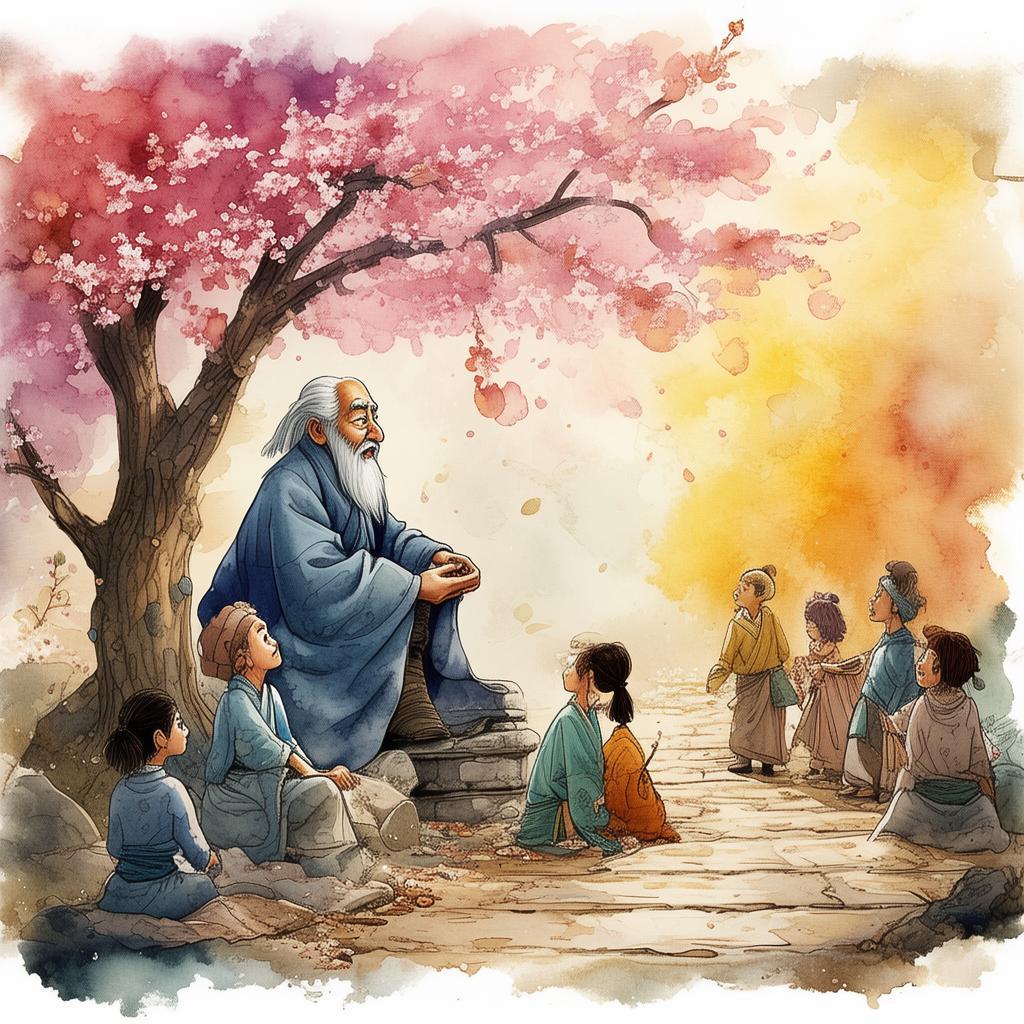
Ming took the amulet and, with a final glance at Yini, closed his eyes. A blinding light once again enveloped him, and when he opened his eyes, he was back in his room.
He opened the book to find that the story had ended. He had saved the princess and returned to his time, all thanks to his love for the language. Ming looked at the book, now tattered and worn, and knew that this adventure was just the beginning of many more to come.
From that day on, Ming's life was forever changed. He continued to study the ancient language, and his adventures in the past became the stuff of legend. And so, the pinyin master known as The Pinyin Paladin became a hero, not just in the pages of his book, but in the hearts of all who heard his tale.
In the end, Ming realized that the true power of language was not just in its ability to communicate, but in its ability to bring people together and overcome even the greatest of challenges. And so, he lived on, a symbol of courage, knowledge, and the unbreakable bond between language and love.
✨ Original Statement ✨
All articles published on this website (including but not limited to text, images, videos, and other content) are original or authorized for reposting and are protected by relevant laws. Without the explicit written permission of this website, no individual or organization may copy, modify, repost, or use the content for commercial purposes.
If you need to quote or cooperate, please contact this site for authorization. We reserve the right to pursue legal responsibility for any unauthorized use.
Hereby declared.
